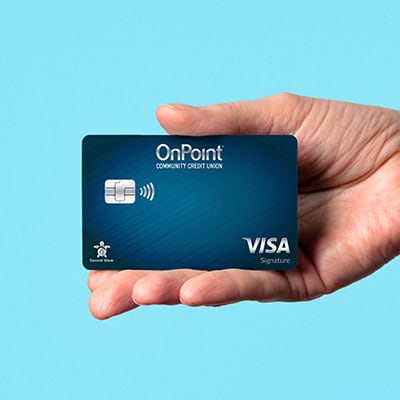A good credit score can provide significant financial benefits, including low interest rates, a higher likelihood of being approved for loans, better credit card benefits, and more. If your credit score is lower than you’d like, you might be searching for the answer to “How to fix my credit score?”
Even though having a low credit score can be stressful, there are many ways to improve your situation. Making small changes over time will help you raise your credit score. Here’s what you can do this year to improve your credit score.
 Credit advice everyone should follow.
Credit advice everyone should follow.
If you’re wondering how to fix bad credit, you’re already on the right track to improving your credit score. Some fundamental advice applies to all financial situations.
Know your credit history and credit score.
First, it’s important to understand what makes up your credit history, how your credit score is calculated, and how your credit history influences your credit score.
Credit history.
Your credit history reflects your outstanding debts, accounts in your name, payment history, and public records such as liens, bankruptcies, or foreclosures. Any loans or credit cards will be part of your credit history. Importantly, your credit history will also show whether you make payments on time or late. Your credit report summarizes all this and more.
You can get a free copy of your credit report once per year from each of the three major credit bureaus—Equifax, TransUnion, and Experian—at www.AnnualCreditReport.com. You can also request the free report by phone or mail:
- Phone: (Toll-free) 1.877.322.8228
- Mail: O. Box 105281, Atlanta, GA 30348-5281
Credit score.
Your credit score is calculated based on the information on your credit report. It can vary between the three credit bureaus and between lenders because different organizations use different models for calculating scores. In other words, they use different formulas and prioritize different pieces of information from your credit report. Two of the most common credit scoring models are Fair Isaac Corporation (FICO) and VantageScore, and even these models come in different versions.
While the free credit reports from annualcreditreport.com do not list it, you have several options for obtaining your credit score. While many companies offer free credit scores online, some require a paid subscription, such as to a credit monitoring service. Government-trained nonprofit credit or housing counselors can provide and review your credit report and score with you, and many lenders provide regular credit score updates on your monthly statements.
You will likely see different scores if you check two or more sources, even on the same day at the same time. Nevertheless, when you are checking the major credit bureaus, they should be relatively similar―a significant discrepancy might be a sign that you should check your credit reports from each credit bureau for any errors. However, it is not uncommon to see a large discrepancy if you pull a score from a credit monitoring service because, in contrast to the credit bureaus, credit monitoring services do not receive information directly from creditors, which can cause a significant difference in scores.
 Check your credit history for accuracy.
Check your credit history for accuracy.
Whether your credit score is high or low, it is crucial to know your credit history. Even if you have a limited credit history or think there’s nothing on your report, you should check your credit report regularly by requesting a free copy from the credit bureaus from annualcreditreport.com.
Requesting a free copy from the credit bureaus is an excellent way to check on your credit because it is a ‘soft inquiry’―it does not impact your credit report the way the hard inquiry of a loan application does. Excessive hard inquiries through different lenders, such as by applying for multiple different types of loans in a short period of time, can negatively impact your score and the potential terms or rates available for loan products.
In a 2013 study, the FTC found that 25% of consumers had an error on their credit report that could impact their score. Checking your credit history can help you catch any common errors or inaccuracies on your credit report. Inaccuracies can also be a red flag of possible identity theft. Watch for:
- Incorrect information (name, phone number, address, or social security number)
- Incorrect balance or credit limit information
- Accounts you don’t recognize
- Accounts linked with someone who shares a similar name
- Closed accounts that appear as open
- Open accounts that appear as closed
- You are listed as the opener of an account when you are the authorizer
- Foreclosures, bankruptcies, and other public information that seems incorrect
- Illegitimate reports of late payments or delinquencies
- Missing accounts
- Duplicate listing of debts (possibly under different names)
- Unauthorized inquiries
Inaccuracies or fraudulent credit activity can impact your credit score, even if you don’t know they’re there.
Dispute any errors as soon as possible.
You can find information on how to dispute errors on each of the leading credit bureau’s websites, with options including online, by phone, or by mail.
Once you report the error, your credit report should be corrected within 30 days. This processing time is why it is important to report errors as soon as possible, especially if you plan to apply for a loan in the near future. Be sure to request written confirmation of any pending update to your credit report―documentation can be helpful to your loan officer if you have a time-sensitive loan application.
 Work with a credit counselor.
Work with a credit counselor.
Getting advice from experts and experienced professionals is always a good idea—even for those looking to maintain good credit. Financial experts can help you develop a clear strategy to improve your credit score and make positive changes in your financial plan. OnPoint works with GreenPath Financial Wellness to provide members free individualized counseling, guidance, and educational resources.
How to fix your credit when you have a Low Score (300-669).
Because there are different credit score scales, the ranges of scores considered “low” will differ. Equifax considers a score from 300-669 as “low.”
It’s always possible to improve your credit score. How long does it take to fix bad credit? Taking some simple steps means you can start to see minor improvements within 30-45 days. These changes can add up significantly over time, and you can see marked improvement in several months to a year.
Focus on past-due accounts.
Contrary to what you might expect, there’s a difference between a late payment and a past-due payment. A late payment is one you make after the official due date, but if you still make the payment within the current billing cycle—typically 30 days—it likely won’t be reported to the credit bureaus as a missed payment, although you may still receive a late fee. Financial institutions have different grace periods and late fees based on the loan product type, so be aware of your institution’s guidelines.
Missed payments on an account can cause it to become past due or delinquent. A single missed payment will stay on your credit report for seven years―it’s important to bring your past-due account current as soon as possible to avoid any additional consequences. After multiple consecutive missed payments, an account can even be sent to collections. Learn more about the regulations surrounding debt collection in Oregon and Washington.
Making at least the minimum payment needed to bring your account current can stop your account from going to collections and is an excellent first step to improving your credit score. The most important factor is consistently making payments on-time. How much you should pay may depend on the type of loan:
- Paying off a credit card balance in full each month will save you interest and keep your revolving credit utilization down, boosting your score.
- For an installment or secured loan, however, having an active loan with continuous on-time payments can improve your score more than paying off the loan early.
If you are experiencing obstacles to paying off past-due accounts, try negotiating with your creditors. It may seem overwhelming. However, it is often possible to work with your creditors. They want repayment on loans and can often create a payment plan for you to keep the account open and in good standing.
In the future, you can generally avoid past-due accounts and improve your credit score with a few practices:
- Ensure accounts are up-to-date and payments are on time.
- Create a budget to manage your spending better.
- Resist the temptation to use your credit cards while you pay them back.
These are all good financial practices and will help your credit score over time.
Make on-time payments.
If you’re looking for a fast way to fix bad credit, one of the best things you can do after bringing past-due accounts current is to ensure that, from now on, you consistently make payments on time—and never for less than the minimum payment due.
Automate your bill payments whenever possible so you don’t miss a deadline. You can set this up either through the company billing you or through your online banking account.
You can also set reminders in your calendar to check your billing accounts regularly to ensure all your payments went through.
Staying diligent with bill payments is a great way to start taking control of your finances.
Lower your credit utilization ratio.
Your credit utilization ratio (CUR) is the percentage of your total available credit that you are using. For example, if you have a credit card with a $1000 limit and a balance of $500, then your CUR is 50%.
A lower CUR can have a positive effect on your credit score. The common recommendation is to keep your CUR under 30%. However, keeping it under 10% can boost your credit score even more.
To lower your CUR, prioritize paying off your debts, especially high-interest credit balances. As your credit score or income increases, try requesting a credit limit increase, as this will lower your CUR. Just be mindful that a hard inquiry can briefly lower your credit score.
Work toward debt repayment.
Another step you can take this year to improve your credit score is to prioritize repaying debts. Lowering your overall debt can have a positive impact on your credit score. Some additional things you should consider include:
- Try to keep your CUR low as you pay down debts, which will avoid unnecessary decreases in your credit score. Limit the use of your credit cards as you pay down the balances.
- Keep your credit accounts with longer histories active, as a more extended credit history can positively impact your credit score. Closing your older accounts not only shortens your credit history but potentially increases your CUR by decreasing your total available credit. To keep an account active, you could pay one or two recurring monthly expenses and then always pay off the balance in full.
- Paying off or refinancing a long-term debt such as a mortgage could potentially impact your credit score in different ways.
- If paying off a mortgage early makes it more challenging to stay current on other loans or bills, refinancing for lower payments or a better rate might be an alternative to consider.
- Repaying loans in full is good, but your credit score is partially calculated by the mix of credit types you maintain.
- If possible, don’t take on new debt while paying off existing accounts. Only take on debt that you really need.
Repaying debt may seem daunting, but consider debt payment philosophies that could work for you, no matter your circumstances. Even small steps can make a positive impact on your credit score.
Open a credit card or secured credit card.
 After you’ve resolved any past-due accounts, and if you aren’t a cardholder already, consider applying for a credit card or a secured credit card. Credit cards can play a prominent role in building your credit. If you genuinely need a card and can use it responsibly, that can be a positive.
After you’ve resolved any past-due accounts, and if you aren’t a cardholder already, consider applying for a credit card or a secured credit card. Credit cards can play a prominent role in building your credit. If you genuinely need a card and can use it responsibly, that can be a positive.
Opening a new line of credit lowers your credit utilization ratio, which could reflect positively on your credit report. If you have a limited credit history, few credit accounts, or are effectively managing your open credit lines, then you may consider a new line of credit. Additionally, using your credit card and paying it off monthly is a great way to grow your credit history.
Keep in mind that applying for new credit can trigger a hard inquiry against your credit. A hard inquiry occurs when a potential lender pulls your credit report to make a credit decision. Frequent hard inquiries in a short amount of time can negatively affect your credit score.
If you can’t qualify for an unsecured credit card, a secured card can be a solid alternative. A secured credit card requires a cash deposit—typically enough to match your credit limit. This deposit serves as collateral against the available credit. If you’re unable to meet your payment obligations, the lender will use this deposit to cover the outstanding balance and any potential fees. Not all lenders offer secured credit cards―at this time, OnPoint does not, although secured personal loans and lines of credit are available as an alternative.
A secured credit card works similarly to a non-secured credit card. You can make purchases with the card and then pay the balance. The difference between a secured credit card and an unsecured card is that with a secured credit card, the security deposit you provide remains with the bank or credit union to “secure” your credit line, which reduces the risk for the lender. A secured credit card can be an excellent option for addressing credit challenges if you have funds available to secure the card.
Keep in mind that it can take time to build your credit score. However, using a card or secured card and paying it off on time every month is a great step towards establishing more credit history, which can help you reach a better score.
How to grow your credit when you have a Medium Score (670 – 799).
If you’ve worked your way up to a medium credit score between 670 and 799, as shared by Equifax—or if your credit has taken a bit of a dip—you may be wondering what to do next.
Higher credit provides more financial privileges, like lower interest rates, better credit card benefits, and a higher chance of being approved to borrow. There are a few ways you can boost your score even more.
Long story short? Maintain the habits we’ve discussed previously. Make your payments on time. Continue to regularly check your credit report, and look at your credit score from time to time to track progress.
But there are a couple of additional steps you can take to refine your financial habits and keep your credit score going in the right direction.
Organize your finances.
Taking the time to organize your finances can help you grow your credit score and keep it high. It can also be great for your peace of mind.
Schedule time to review your accounts. Adding a reminder on the calendar to go over bills and accounts regularly can help you stay on top of things and avoid surprises. Maybe you’ll set aside time at the beginning of the month, the fifteenth, or when you get billing statements.
Revisit your budget and track your spending. Are your actual expenses in line with your goals? Can you find additional savings, perhaps by eliminating online subscriptions you no longer need?
Prioritize paying off high-interest or high-balance debt. This will lower your CUR and relieve a bit of financial burden.
Periodically check in with your insurance plans and credit cards to see if they still fit your needs or can be re-negotiated. For example, compare auto insurance rates every six months to see if you can get a better rate by switching providers. Or if your credit score has increased, contact your lender to see if you can qualify for a better interest rate.
Checking in with your finances regularly—reviewing balances, bills, and your goals—can help you avoid missing payments and adapt your budget to what you need most. More organization can help you refocus on your goals, spend more intentionally, and improve your credit score.
Consider refinancing or balance transfer options.
If you have a medium credit score, balance transfers or refinancing could help you reorganize your debts with better terms and payment plans. For example, you can transfer your credit card balance or refinance your loans for a lower interest rate. You can also consolidate balances and reduce the number of monthly payments you need to make. In some cases, you’ll find promotional rates for balance transfers that are lower than expected for a set period of time.
Although these options can temporarily lower your score if they involve a credit check, they can benefit you in the long run. They can also lower your financial burden and give you more breathing room while you get your finances in order. Just be sure to be aware of what the interest rate will be after any promotional period.
Explore a personal loan.
Speaking of balance transfers, they are most commonly completed with credit cards; however, a personal loan has some potential advantages as an alternative. Many credit cards have a variable interest rate, which means your payments could go up. A personal loan tends to have a fixed rate, which means you’ll potentially save money and be certain as to when you’ll have the balance paid down, reducing your CUR.
Another element of your credit score is your credit diversity. Showing that you can handle different types of loans, such as a ‘revolving’ loan like a credit card and an ‘installment’ loan like a personal loan, can be beneficial to your credit score.
How to preserve your credit when you have a High Score (800 – 850).
A high credit score generally falls in the range of 800-850, as noted by Equifax.
If you have a high credit score, there are steps you can take to maintain it.
Prioritize good debt.
Knowing the difference between good debt and bad debt can help you prioritize how you manage them. Try to concentrate on debt that provides a clear benefit, like:
- A mortgage
- Car loans
- Education loans
Clear benefits include:
- The ability to build equity and generational wealth through home ownership
- Affording a new car—a necessity for people who need reliable transportation for work
- Higher education’s impact on your future income
However, even good debt needs to be affordable. Buying a new home can lead to trouble if you can’t manage the monthly payments. Choosing a car that’s too expensive for your budget would be bad debt. Ensure you have a solid repayment plan and a budget, and don’t take on more debt than you can manage.
Other forms of bad debt can come with higher interest rates, worse terms, and little apparent benefit. Be judicious about using your credit cards. Avoid taking on considerable debt for things you want rather than need―for things you want or luxuries, save up to pay cash, or at least have a payoff plan if you are taking on more debt.
Build savings and investments for a rainy day.
Many people with good credit scores also find themselves able to save and invest a portion of their income. If you have a high credit score and pay down your debt consistently, you should focus on setting up an emergency savings separate from investments or other savings earmarked for vacations and other desires.
If you can set aside funds in a liquid savings account equivalent to 3-6 months of your regular expenses, you’ll be protected against any large disruption in your life, such as loss of employment or a medical expense that might otherwise put you at risk of missed payments or take on more debt, either of which could drop your credit score.
You can improve your credit score.
Everyone is capable of improving their credit score. You need to make a plan that works for you. Remember: little improvements lead to big wins over time. Take some of these steps into account, and you should see steady improvement in your credit score.
If your credit score is low:
- Check your credit report. Dispute any inaccuracies.
- Focus on bringing any past-due accounts current.
- Take control of your bills to make your payments on time. Automatic payments are a good option here.
- Prioritize lowering your CUR and repaying debt.
If your credit score is medium:
- Organize your finances to help you manage them more easily, such as setting up calendar reminders to review your accounts regularly.
- Assess your budget and look for any opportunities for savings.
- Consider balance transfers or refinances that lower your interest costs or simplify your monthly payments.
If your credit score is high:
- Focus on debt that brings a clear benefit and fits into your budget.
- For wants and luxuries, focus on saving up to pay with cash.
- Build an emergency savings to protect your credit against disruptions to your income and other challenges.
For a deeper dive into credit, look at OnPoint’s free credit ebook. This resource can help answer more of your questions about credit scores and how to improve yours.


